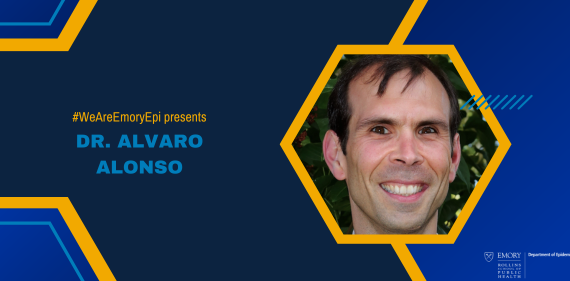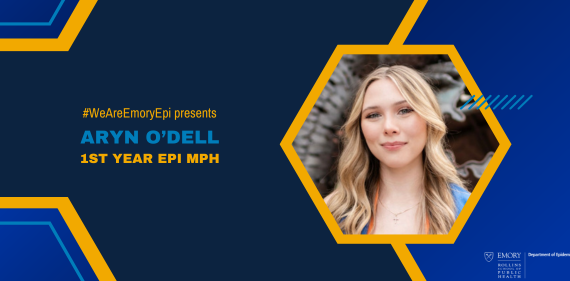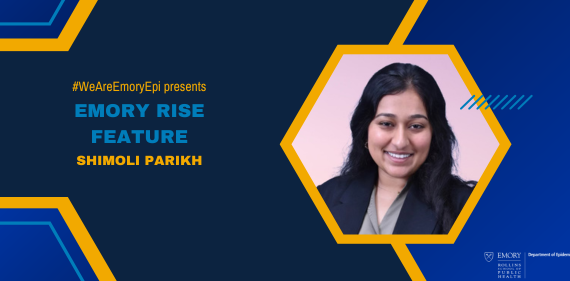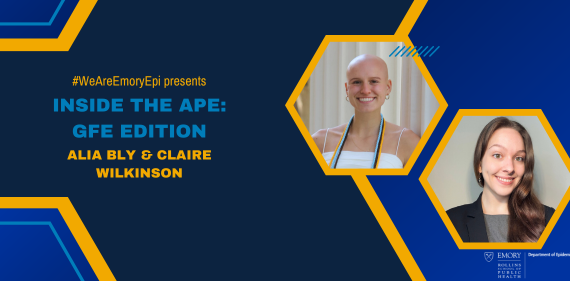#WeAreEmoryEpi: Neyati Patel
Category : #WeAreEmoryEPI

Welcome back to #WeAreEmoryEPI! For our first spotlight this New Year, we have Neyati Patel, a first-year MPH student, sharing insights from her #EmoryEPI journey so far.
Interview conducted by Aditi Nayak.
Tell us about your academic history/where you went to school before Emory.
I completed my undergraduate degree at the University of Kentucky, where I studied Human Health Sciences. During my time there, I was involved in equestrian research that focused on injury prevention and longevity among horse riders, specifically jockeys and competitive riders. Our work examined ways to minimize head, neck, and spine injuries through performance testing and applied research, which sparked my interest in how epidemiologic methods can be used to improve health outcomes.
When applying, what were you looking for within public health, and why did you choose #EmoryEPI for your MPH?
I chose Emory EPI because of its strong reputation as one of the leading epidemiology programs in the country and the opportunity to learn from faculty who are deeply involved in real-world public health research and practice. I was also drawn to Emory’s strong connections with healthcare systems, public health agencies, and other organizations across Atlanta and beyond.
What are your primary research interests?
My primary research interests focus on infectious disease surveillance and the role it plays in identifying disparities and guiding public health action. I am particularly interested in how surveillance data can be used not only to track disease patterns, but also to inform more equitable prevention and intervention strategies.
Are there any exciting certificates/projects you are currently working on that you’d like to share with us?
I’m currently pursuing the Infectious Disease Epidemiology certificate, and I work with the Georgia Emerging Infections Program on Active Bacterial Core surveillance. In this role, I support surveillance activities, data abstraction, and quality assurance efforts.
What has been your favorite class at Rollins thus far, and why?
My favorite class at Rollins so far has been HIV Epidemiology. It has deepened my understanding of the disease, from transmission dynamics to prevention strategies and long-term outcomes. Dr. Jodie Guest makes complex concepts engaging and consistently connects the science to real-world public health practice. I also enjoyed taking Epidemiologic Methods 1 with her, as it gave me a strong foundation in different study designs and helped me think more critically about how we generate and interpret evidence in public health research.
What advice do you have for new #EmoryEPI students?
My advice is to really put yourself out there and take initiative- go to events, introduce yourself to faculty, apply for opportunities even if you feel unsure, and start building your network early. Emory has incredible resources and connections, but the more proactive and engaged you are, the more you’ll get out of the experience!
Thanks for sharing such great insights, Neyati!
To our readers: keep an eye out for the Confounder newsletter every Monday for more #WeAreEmoryEPI student spotlights, and feel free to reach out to aditi [dot] nayak [at] emory [dot] edu if you want to share your #EmoryEPI journey!














 Claire: In Santa Apolonia, I collaborated with fellow Rollins student, Amelia Heckman, and local community stakeholders to develop a Community Health Needs Assessment (CHNA). We created and administered 115 culturally sensitive surveys, conducted twelve key informant interviews in Spanish, and employed quantitative and qualitative analyses using SAS, Excel, and MAXQDA. We are now finalizing the assessment and will distribute it to community leaders and stakeholders to guide future health polices and initiatives.
Claire: In Santa Apolonia, I collaborated with fellow Rollins student, Amelia Heckman, and local community stakeholders to develop a Community Health Needs Assessment (CHNA). We created and administered 115 culturally sensitive surveys, conducted twelve key informant interviews in Spanish, and employed quantitative and qualitative analyses using SAS, Excel, and MAXQDA. We are now finalizing the assessment and will distribute it to community leaders and stakeholders to guide future health polices and initiatives.



Recent Comments